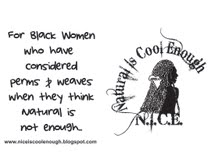As a person who holds a Master's Degree in Public Health (MPH) from Yale University and a Doctorate in Community Health from Columbia Teacher's College (Ed.D), and who also served as a Public Health Professor for many years, I have decided that I cannot hold back on my perspective in terms of what is happening in regard to Ebola from the vantage point of Cultural Competency. I have two textbooks that I have written on the subject of Cultural Competency, mentioned per this blog previously. The first is entitled Cultural Competency for Health Administration and Public Health: http://www.jblearning.com/catalog/9780763761646/ and the second Cultural Competency for the Health Professional: http://www.jblearning.com/catalog/9780763761646/ .
In these books, I have case studies, which provide insight as to what should and should not be done, in caring for patients, from a culturally competent vantage point. In the recent Ebola outbreak, there have been a number of problems. Although I was a biology major for my undergraduate studies and the scientific aspects of the virus are compelling, I'm not going to get into the virus itself and its origin, the transmission process, the epidemiological implications of the matter, etc.. Natural is Cool Enough is generally a blog about natural hair and clearly, venturing too far into science at N.I.C.E. (unless I am talking about chemicals as they relate to hair/scalp, etc.) would be a tremendous deviation from the theme.
But, since this is a Natural Is Cool Enough pause, here are my key thoughts in regard to Ebola and cultural competency:
1. It is culturally incompetent, to use the term West Africa as a broad term to discuss the Ebola outbreak, as the current situation pertains to specific West African nations, not the entire region. West Africa consists of the following nations: Benin, Burkina Faso, Cameroon, Cape Verde, Chad, Côte d'Ivoire, Equatorial Guinea, The Gambia, Ghana, Guinea, Guinea-Bissau, Liberia, Mali, Mauritania, Niger, Nigeria, Senegal, Sierra Leone, and Togo.
Here is a map of West Africa:
If Ebola has only been widespread in the nations of Liberia, Guinea and Sierra Leone, why is the term West Africa being used, in discussing Ebola, without clarity, at all times. There should always be an indication that it is not the entire region that has been impacted but a few nations. Per the CDC Senegal has only had one case and it was travel associated. There were only a small number of cases in Nigeria. Per the latter two nations, Ebola has been contained. Note the detail here regarding the relevant countries: http://www.cdc.gov/vhf/ebola/outbreaks/2014-west-africa/distribution-map.html
So why is the term West Africa used so frequently when the Ebola outbreak is discussed, rather than only using the names of the nations that have been impacted? Each of these nations are different based on culture and many other categories. They are not the same.This broad based approached to discussing them, in terms of Ebola, is incorrect. The lack of understanding that they are different nations with different, cultures and often languages, etc. is an indication of cultural incompetence and a distortion of information.
2. A person should not be subjected to Ebola screening with a temperature check in the airport, if they are from a West African nation that has not been impacted by Ebola. Such measures that have been put in place should, if deemed necessary and appropriate (that is a matter for another discussion) only be in regard to those specific nations where Ebola has been found. See number one above to understand why.
3. Africa is a continent, not a country, so indicating that Africa, in general, has Ebola cases without speaking specifically of those nations that are impacted is also a clear indication of lack of knowledge. Also, let's look at the numbers of those nations that are impacted. The total population of Liberia is ~4.294 million, Sierra Leone, ~6.092 million and Guinea, ~11.75 million. Take a look at the chart above for the cases that have taken place thus far and compare them to the total population. So the percentages that are being discussed are as follows:
Liberia: 4076/4294000=~.094923%
Sierra Leone: 2593/6092000=~.042564%
Guinea: 1097/11750000 = ~.0093362
West Africa at large has a population of approximately 245 million according to the World Health Organization: http://web.worldbank.org/WBSITE/EXTERNAL/NEWS/0,,contentMDK:20179737~pagePK:34370~piPK:42768~theSitePK:4607,00.html.
The current outbreak of Ebola is not a pandemic as it is not spread very quickly over a wide geographic area throughout the world while affecting a large percentage of the population.
So what is it? Is it an outbreak or an epidemic? Rather than venturing down this road, I'll let you decide. UCLA has provided a list of definitions of some pertinent terms at this link:
http://www.ph.ucla.edu/epi/bioter/anthapha_def_a.html
Ultimately, the bottom-line is that what is happening with EBOLA is deeply sad and for every person who has experienced it there is no doubt that it is traumatically serious situation. But in the process of coming to terms with it all and sharing our love and concern for each other as human beings, we must at the very least be culturally competent as we are doing so.
Natural Is Cool Enough (N.I.C.E.) sends heartfelt concern and care to all individuals, families, friends and loved ones of those who have been impacted by Ebola, no matter where you are in the world, with hopes that those who are from nations that have been impacted will be treated with the respect and dignity you deserve, culturally and beyond, at all times.
In these books, I have case studies, which provide insight as to what should and should not be done, in caring for patients, from a culturally competent vantage point. In the recent Ebola outbreak, there have been a number of problems. Although I was a biology major for my undergraduate studies and the scientific aspects of the virus are compelling, I'm not going to get into the virus itself and its origin, the transmission process, the epidemiological implications of the matter, etc.. Natural is Cool Enough is generally a blog about natural hair and clearly, venturing too far into science at N.I.C.E. (unless I am talking about chemicals as they relate to hair/scalp, etc.) would be a tremendous deviation from the theme.
But, since this is a Natural Is Cool Enough pause, here are my key thoughts in regard to Ebola and cultural competency:
1. It is culturally incompetent, to use the term West Africa as a broad term to discuss the Ebola outbreak, as the current situation pertains to specific West African nations, not the entire region. West Africa consists of the following nations: Benin, Burkina Faso, Cameroon, Cape Verde, Chad, Côte d'Ivoire, Equatorial Guinea, The Gambia, Ghana, Guinea, Guinea-Bissau, Liberia, Mali, Mauritania, Niger, Nigeria, Senegal, Sierra Leone, and Togo.
Here is a map of West Africa:
Here is a map of the entire continent of Africa:
So why is the term West Africa used so frequently when the Ebola outbreak is discussed, rather than only using the names of the nations that have been impacted? Each of these nations are different based on culture and many other categories. They are not the same.This broad based approached to discussing them, in terms of Ebola, is incorrect. The lack of understanding that they are different nations with different, cultures and often languages, etc. is an indication of cultural incompetence and a distortion of information.
2. A person should not be subjected to Ebola screening with a temperature check in the airport, if they are from a West African nation that has not been impacted by Ebola. Such measures that have been put in place should, if deemed necessary and appropriate (that is a matter for another discussion) only be in regard to those specific nations where Ebola has been found. See number one above to understand why.
3. Africa is a continent, not a country, so indicating that Africa, in general, has Ebola cases without speaking specifically of those nations that are impacted is also a clear indication of lack of knowledge. Also, let's look at the numbers of those nations that are impacted. The total population of Liberia is ~4.294 million, Sierra Leone, ~6.092 million and Guinea, ~11.75 million. Take a look at the chart above for the cases that have taken place thus far and compare them to the total population. So the percentages that are being discussed are as follows:
Liberia: 4076/4294000=~.094923%
Sierra Leone: 2593/6092000=~.042564%
Guinea: 1097/11750000 = ~.0093362
West Africa at large has a population of approximately 245 million according to the World Health Organization: http://web.worldbank.org/WBSITE/EXTERNAL/NEWS/0,,contentMDK:20179737~pagePK:34370~piPK:42768~theSitePK:4607,00.html.
The current outbreak of Ebola is not a pandemic as it is not spread very quickly over a wide geographic area throughout the world while affecting a large percentage of the population.
So what is it? Is it an outbreak or an epidemic? Rather than venturing down this road, I'll let you decide. UCLA has provided a list of definitions of some pertinent terms at this link:
http://www.ph.ucla.edu/epi/bioter/anthapha_def_a.html
Ultimately, the bottom-line is that what is happening with EBOLA is deeply sad and for every person who has experienced it there is no doubt that it is traumatically serious situation. But in the process of coming to terms with it all and sharing our love and concern for each other as human beings, we must at the very least be culturally competent as we are doing so.
Natural Is Cool Enough (N.I.C.E.) sends heartfelt concern and care to all individuals, families, friends and loved ones of those who have been impacted by Ebola, no matter where you are in the world, with hopes that those who are from nations that have been impacted will be treated with the respect and dignity you deserve, culturally and beyond, at all times.
















No comments:
Post a Comment